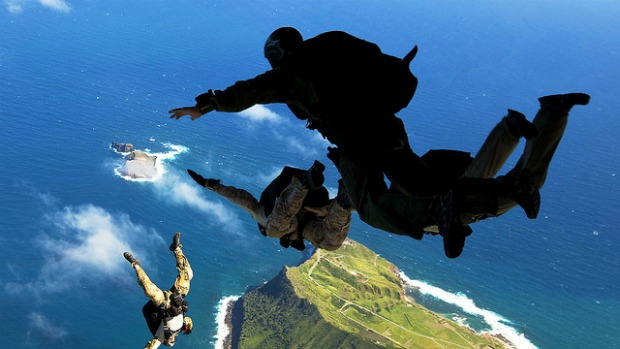
When I started VIA in 1993, my mother sent me a card with the famous quote from Margaret Mead: “Never doubt that a small group of thoughtful, committed citizens can change the world. Indeed, it is the only thing that ever has.” I believed it then, but now I know it to be the truth.
This year VIA was named Small Advertising Agency of the Year by Ad Age and Creativity in large part because we have been able to do what the huge ad agencies struggle with--get results for companies operating in extraordinarily challenging markets. One client went so far as to say that VIA is the "Seal Team 6" of the marketing world. Being small is a huge advantage when trying to do the impossible.
From my experience, these are some of the things to think about as you build a small team:
Eradicate fear: Big operates on fear. Small operates on thrill. Small teams are less political by nature because there are fewer relationships and greater transparency. Small teams can go for broke because they deal with less of the bureaucracy that can quickly kill an idea. But the fearlessness needed to bring forth the best thinking has to be nurtured. You need to stamp fear out and reward those who are bold. Only then do you have a shot at making big change happen.
Respect diversity: I believe that to solve very complex problems you need a variety of viewpoints and ideas. It is imperative that group leaders play no favorites. All opinions and roles must be valued. This ensures balanced contribution and keeps all players equally motivated. This top-to-bottom equity of contribution is the foundation of excellence.
Create clarity: It is critical that everyone’s role is clearly defined and ownership is distributed wisely. Only then can a team move with the speed needed to keep pace in today’s world. I have found that rotating leadership between people of various skills, depending on the phase of the project, can add an additional degree of decisiveness, speed, and quality.
Recognize chemistry: Chemistry is like porn--I know it when I see it. I can’t tell you why some people click and others don’t. But I have come to realize that it is essential to build teams that have good chemistry. I am not saying everyone has to be the same, or even friends, but I do believe that for small teams to be exceptional they have to have the same attitude and vibe, i.e., chemistry.
Share experiences: If you want a high-performing small team, you have to put them through some battles together. There is no replacement for living through rough or wild times. The stories that come from common experiences are the lessons that allow everyone to understand the strengths and weaknesses of the team, while providing a roadmap for how future endeavors should be undertaken. These shared experiences create group empathy, which leads to a bond that gets a team through the highs and lows. Accelerate team bonding by finding unique and challenging ways to pressure-test the team. The dividends will be aplenty.
Drop dead weight: When you don’t have a big group with lots of depth, you need everyone to be a black belt at what he or she does. The old adage is so very true: you are only as good as your weakest link. Any team will immediately recognize the weakest players and will try to work around them, which is the first step to mediocrity. You have to lose the dead weight. Harsh, but true.
Dream bigger: You can’t change the world without dreams of what could be. Because there are countless things that will tear down your dreams along the way, I propose that you start with bigger dreams. Then dare your teams to be absurdly aspirational. In my experience, it is an easier task to get a small team to dream big since there are fewer voices to judge you. If you start with big dreams, the likelihood of even part of your dream coming true is more likely.
Trust me, those rose-colored glasses will look fantastic on you.
Author John Coleman is CEO and founder of The Via Agency.
[Image: Flickr user The National Guard]